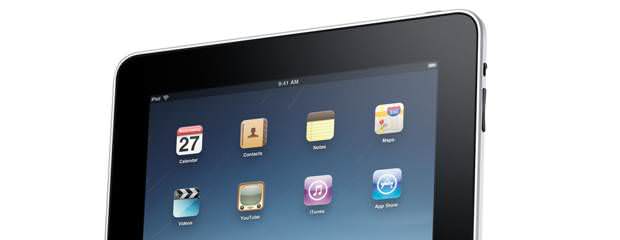
Divergent Views on Communicating with Machines
The Apple iPad, with it's multi-touch capability, has already changed our expectations as to how we interact with our computers, tablets and phones. And Apple's Siri and Microsoft's Kinect are leading us on to even newer ways -- smart ways of interaction between users and their devices.
Menu-driven series of commands
In a menu-driven series of commands, a driver can call up the latest news of the hour, select a live stream of his or her favorite station, or access programs or topics from NPR's large library of podcasts by using a set of simple commands like "hourly news" or "stations" or "programs" followed by the name of the program. The resulting selection may be playing on the FM band, streaming live, or streaming from the archives of NPR over the Internet.
Shortly afterwards this presentation I went to the Steve Ballmer Microsoft Keynote Speech. Bizarre is a charitable word to describe this off-putting, fever-pitched but unexciting sales pitch for everything Microsoft. Very little news, less information about new product introductions, and much puffery about the new Windows 8 Operating System coming sometime this year. Not a word about robotics although Microsoft supports and sells a robotic operating system. Ballmer presented Windows 8 and Metro - the same systems that are limiting NPR's app by not having a capable and reliable free-form voice recognition system similar to Apple's Siri - as the cat's meow; the very highest tech and best you can buy anywhere.
I in fact felt bad from the presentation - to see such an unappealing sales pitch during omitting Microsoft's vision for the future. [MS announced that this would be Ballmer's and their last keynote at CES - a fact which underscores how the shift toward mobile devices has kept MS re-allocating talent and resources to adapt.] As an aside, Bloomberg Businessweek Magazine just did a cover story about Ballmer turning the company into a more relevant powerhouse with cooler research and as well a serious player in cloud computing.
In that article, Businessweek describes what I saw: "For many, the lasting impression of Ballmer is the sweaty, breathless, booming clown seen in countless YouTube clips [or in my case, in person at CES]. He plays the cheerleader in an apparent effort to prove that no one can top his love of Microsoft - and he succeeds cringingly then." The article goes on to describe Ballmer as pretty normal except in public presentations. For all that, I left that night without any new information and with a headache and bad feeling.
The doors for CES opened
All three of these presentations occurred earlier the doors for CES opened, and when I walked the massive exhibition space, those visions peppered what I saw with what I believed to be the immediate future in mobility, communication and apps. It is clear to me that in spite of Mr. Ballmer's sales pitch to buy today's systems and products because they were great, free form voice recognition is the future of communication with our machines and "smart" is the pathway we are following for the purpose goal.
CES is a show focused on nearly-term product releases those that will be launched later this year, in the course of time for Christmas, and into straightway year. Throughout CES, nearly all of the consumer products were demonstrating smarter products - smarter in the sense that they are connected to the Internet or a local net and have sensors or artificial intelligence that gather and process data and make decisions based on that information all to add value to the product by providing convenience or entertainment to the buyer.
The most advanced manner of communicating with smart products is by voice and gesture. Today's research is menu-driven nevertheless the future is free-form and natural. Hence the flurry of acquisitions into the language processing space: Apple's acquisition of Siri; Google just bought CleverSense; Aldebaran recently purchased Karotz. And Nuance is already established in this arena. Nuance voice processing is repackaged and used by many car companies for their in-car systems including both Ford and Mercedes.
Wonderful invention that other companies are hacking
It is a wonderful invention that other companies are hacking and incorporating into their products. PrimeSense, the Israeli inventor of the Kinect device and it's software, has been doing a booming business selling the device for non-gaming applications, technology and who knows what else.
Consequently, it was easy to see that at CES 2012 the path to the then and there level of "smart" products is through the use of better communication with those products - gesture and voice recognition, and natural language, to command and control them - just like Tom Cruise in Mission Impossible.
- · Rackspace debuts OpenStack cloud servers
- · America's broadband adoption challenges
- · EPAM Systems Leverages the Cloud to Enhance Its Global Delivery Model With Nimbula Director
- · Telcom & Data intros emergency VOIP phones
- · Lorton Data Announces Partnership with Krengeltech Through A-Qua⢠Integration into DocuMailer
